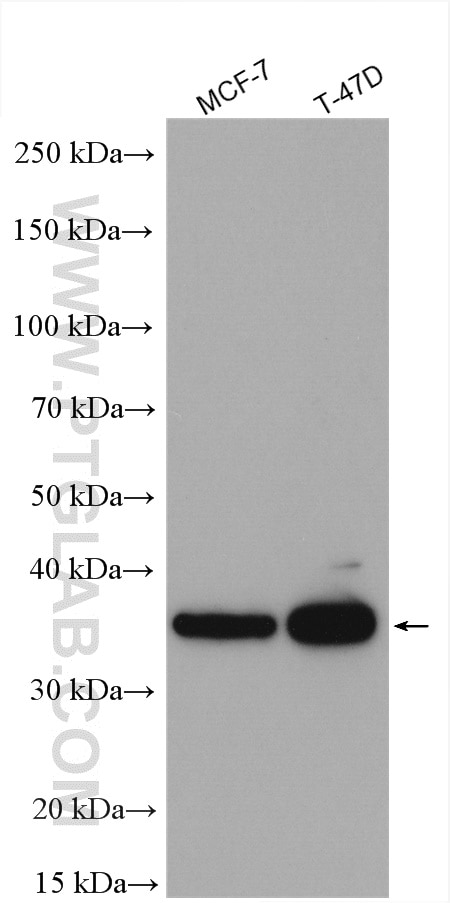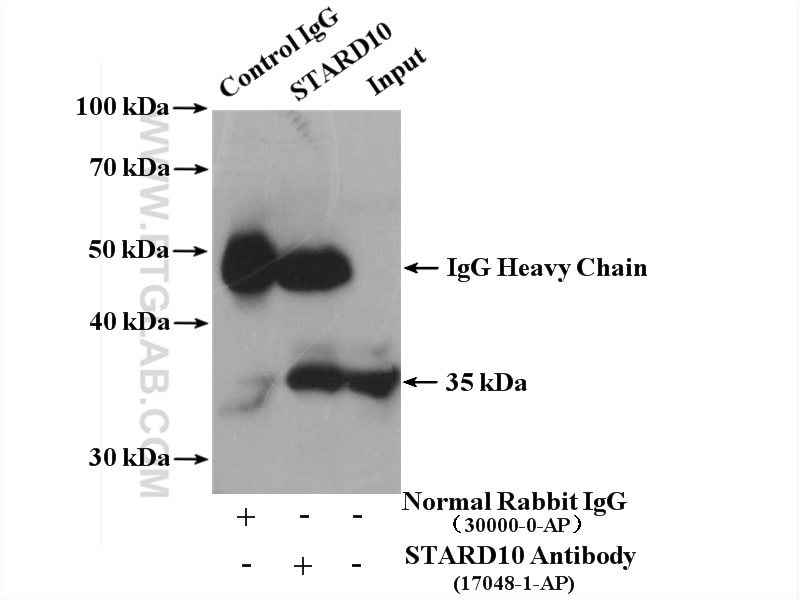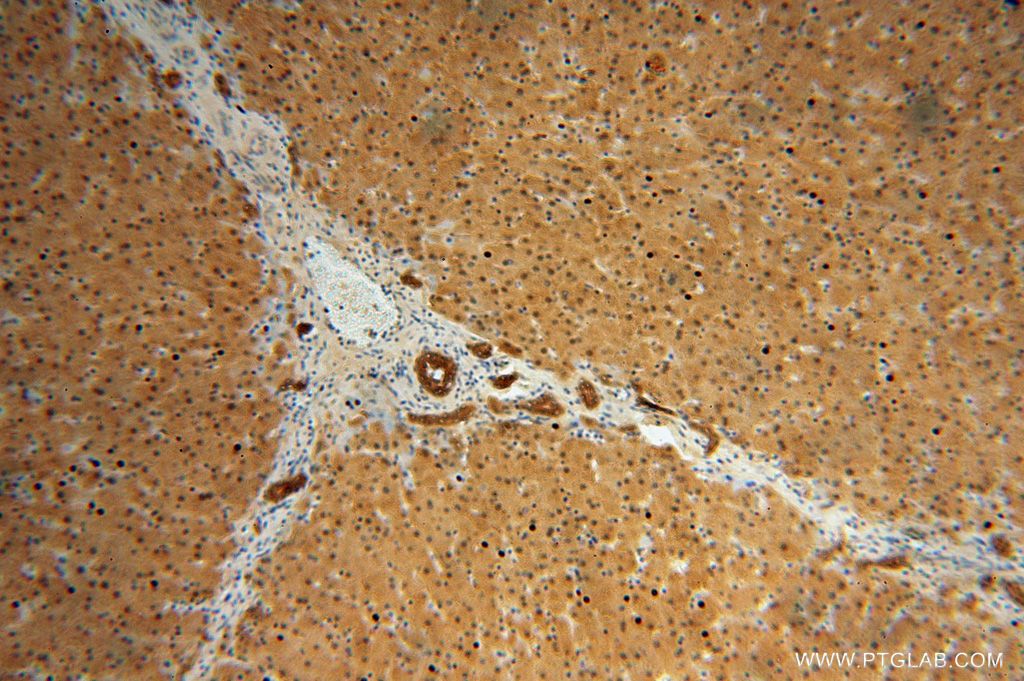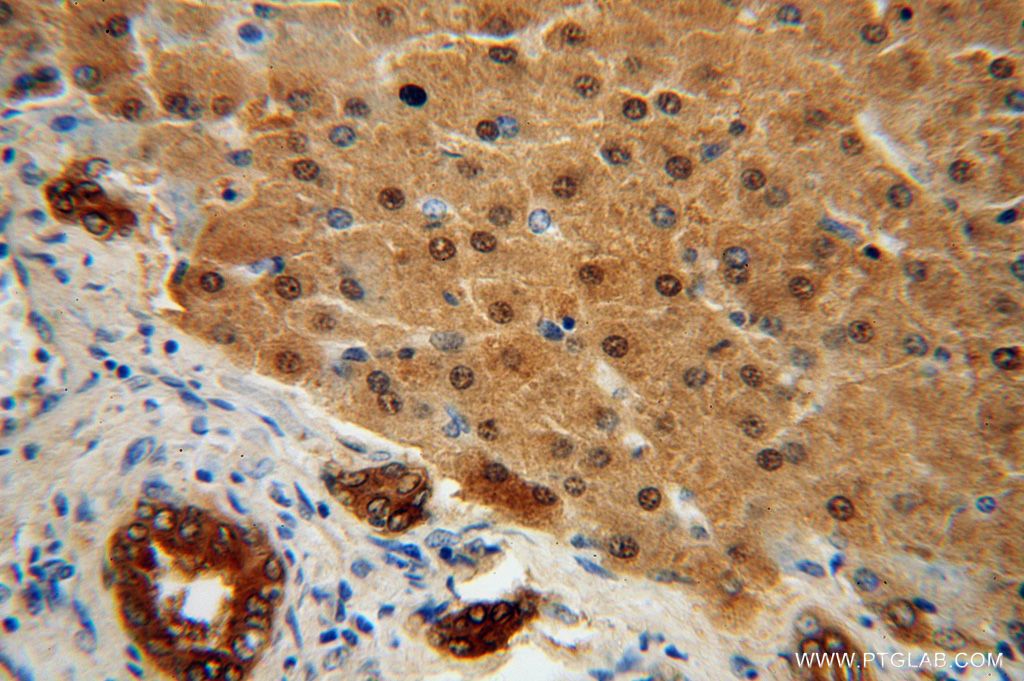Anticorps Polyclonal de lapin anti-STARD10
STARD10 Polyclonal Antibody for WB, IP, IHC, ELISA
Hôte / Isotype
Lapin / IgG
Réactivité testée
Humain
Applications
WB, IP, IHC, ELISA
Conjugaison
Non conjugué
N° de cat : 17048-1-AP
Synonymes
Galerie de données de validation
Applications testées
| Résultats positifs en WB | cellules MCF-7, cellules T-47D |
| Résultats positifs en IP | cellules HepG2, |
| Résultats positifs en IHC | tissu hépatique humain il est suggéré de démasquer l'antigène avec un tampon de TE buffer pH 9.0; (*) À défaut, 'le démasquage de l'antigène peut être 'effectué avec un tampon citrate pH 6,0. |
Dilution recommandée
| Application | Dilution |
|---|---|
| Western Blot (WB) | WB : 1:1000-1:8000 |
| Immunoprécipitation (IP) | IP : 0.5-4.0 ug for 1.0-3.0 mg of total protein lysate |
| Immunohistochimie (IHC) | IHC : 1:20-1:200 |
| It is recommended that this reagent should be titrated in each testing system to obtain optimal results. | |
| Sample-dependent, check data in validation data gallery | |
Informations sur le produit
17048-1-AP cible STARD10 dans les applications de WB, IP, IHC, ELISA et montre une réactivité avec des échantillons Humain
| Réactivité | Humain |
| Hôte / Isotype | Lapin / IgG |
| Clonalité | Polyclonal |
| Type | Anticorps |
| Immunogène | STARD10 Protéine recombinante Ag10705 |
| Nom complet | StAR-related lipid transfer (START) domain containing 10 |
| Masse moléculaire calculée | 291 aa, 33 kDa |
| Poids moléculaire observé | 35-40 kDa |
| Numéro d’acquisition GenBank | BC007919 |
| Symbole du gène | STARD10 |
| Identification du gène (NCBI) | 10809 |
| Conjugaison | Non conjugué |
| Forme | Liquide |
| Méthode de purification | Purification par affinité contre l'antigène |
| Tampon de stockage | PBS avec azoture de sodium à 0,02 % et glycérol à 50 % pH 7,3 |
| Conditions de stockage | Stocker à -20°C. Stable pendant un an après l'expédition. L'aliquotage n'est pas nécessaire pour le stockage à -20oC Les 20ul contiennent 0,1% de BSA. |
Informations générales
STARD10 (START domain-containing protein 10, also known as PCTP-like protein) is highly expressed in liver and responsible to transfer phosphatidylcholine. STARD10 was identified as a protein overexpressed in breast cancer that cooperates with the ErbB family of receptor tyrosine kinases in cellular transformation (PMID: 15911624). This antibody detected duplicate bands between 35-40 kDa (PMID: 15150109).
Protocole
| Product Specific Protocols | |
|---|---|
| WB protocol for STARD10 antibody 17048-1-AP | Download protocol |
| IHC protocol for STARD10 antibody 17048-1-AP | Download protocol |
| IP protocol for STARD10 antibody 17048-1-AP | Download protocol |
| Standard Protocols | |
|---|---|
| Click here to view our Standard Protocols |





